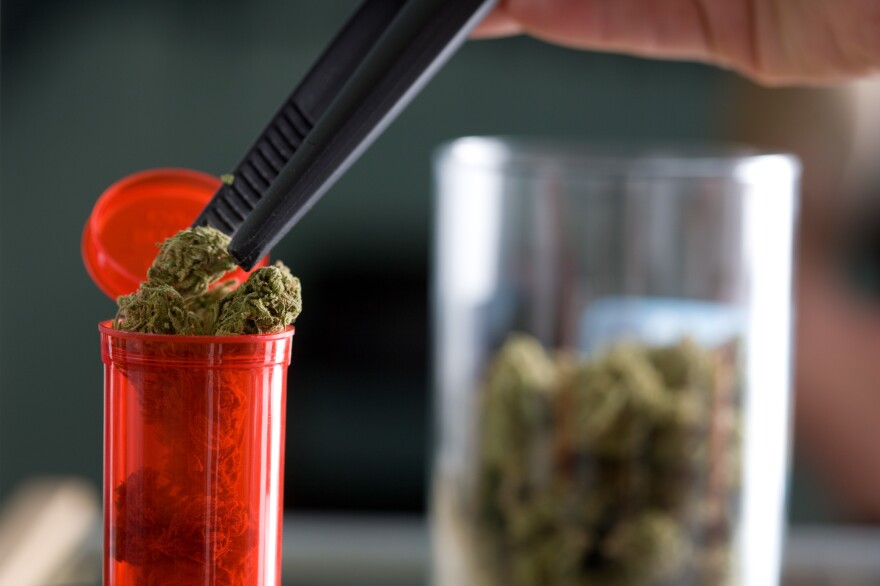Summer Kriegshauser is one of 150 students in the inaugural class of the University of Maryland, Baltimore's , the first graduate program of its type in the country.
This will be Kriegshauser's second master's degree and she hopes it will offer her a chance to change careers.
"I didn't want to quit my really great job and work at a dispensary making $12 to $14 an hour," says Kriegshauser, who is 40. "I really wanted a scientific basis for learning the properties of cannabis — all the cannabinoids and how they interact with the body. I wanted to learn about dosing. I wanted to learn about all the ailments and how cannabis is used within a medical treatment plan, and I just wasn't finding that anywhere," she adds.
The program stands largely alone: Some universities and two have created undergraduate degrees in medicinal plant chemistry, but none have yet gone as far as Maryland.
Stretched over two years and conducted almost exclusively online, the program launched as an increasing number of jurisdictions across the country legalize pot — primarily for medical uses, but in some places recreational, as well.
As of mid-October, nearly , the District of Columbia, Guam, Puerto Rico and U.S. Virgin Islands had legalized medical cannabis, creating an ever-expanding universe of opportunities for people looking to grow, process, recommend and sell the drug to patients. And given how quickly attitudes and laws on cannabis are shifting, those opportunities are expected to keep expanding.
But even as the industry has quickly grown, expertise has remained largely informal. And for people looking to change careers, like Kriegshauser, getting into the legal cannabis field can seem risky, with the likely job options hard to come by.
The University of Maryland credits the overwhelming response to its graduate program to that desire for more information and opportunity. More than 500 hopefuls applied for what was supposed to be a class of 50, prompting the university to increase the size of the inaugural class threefold. And the class is geographically diverse, coming from 32 states and D.C., plus Hong Kong and Australia.
The students take four required core courses — including one on the history of medical weed and culture, and two basic science classes. Students then choose between a number of electives.
, a pharmacist and the program's director, says officials at the university see a parallel trend. More and more of their graduates were entering a professional world where cannabis is seen as an alternative medicine for any number of ailments, and one that more patients are curious about.
"There have been a number of studies, primarily with health professionals, indicating that there is an educational gap related to medical cannabis — that health professionals want more education because patients are coming to them with questions about cannabis and therapeutic uses," Sera says.
, an associate professor of psychiatry at Harvard Medical School, is leading one of the country's most ambitious research projects on medical marijuana at McLean Hospital in Boston.
She says Maryland's program is proof that as the drug becomes ever more present among patients, more research on its effects will be needed.
"I know some say, 'Oh, it's just a moneymaker for the institution,' but it's because people are asking for it," she says. "People are interested in learning more and knowing more, so [Maryland's program] underscores the need to have more data."
That's the challenge for an academic program on cannabis; the drug remains largely illegal under federal law, which has hampered its study over the years and means very little concrete research exists for students to dig into. But as that changes, Sera says, the program will continue to evolve.
And she expects that students will see immediate opportunities in the rapidly expanding industry once they graduate.
There remains plenty of uncertainty, of course, and as the recreational use of weed is made legal in more places, established medical cannabis programs, and their associated jobs, may dwindle. But Summer Kriegshauser says making the leap into Maryland's program made sense for her — and she bets it will pay off.
Copyright 2020 WAMU 88.5. To see more, visit . 9(MDAxNDQ2NDAxMDEyNzU2NzM2ODA3ZGI1ZA001))




